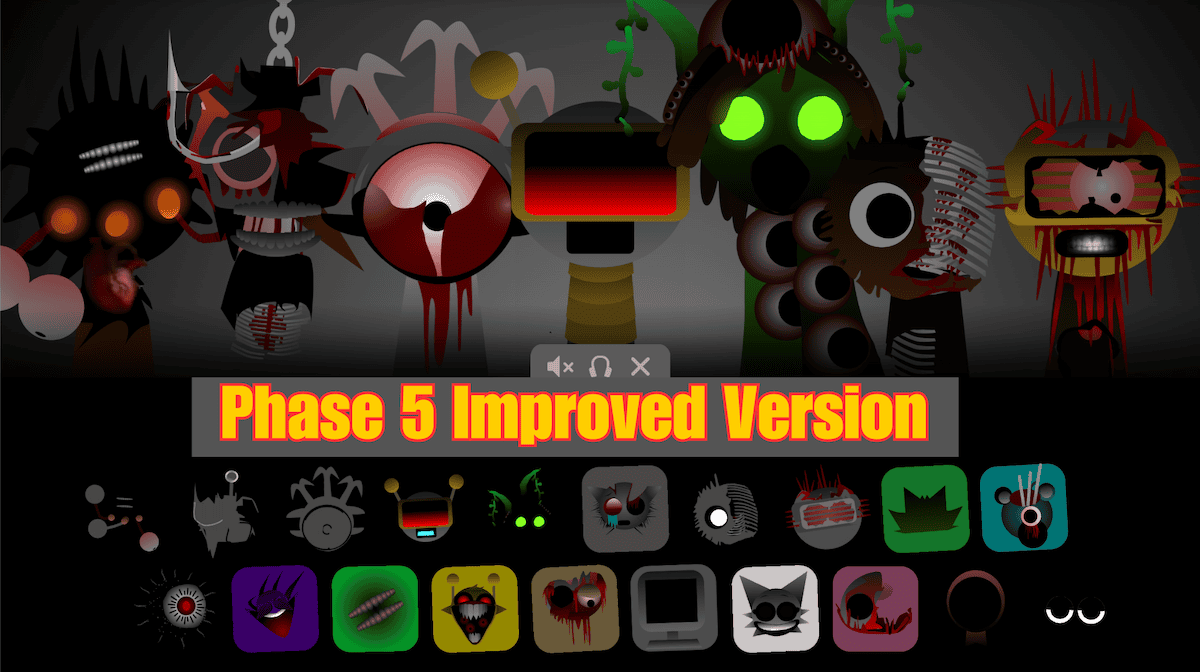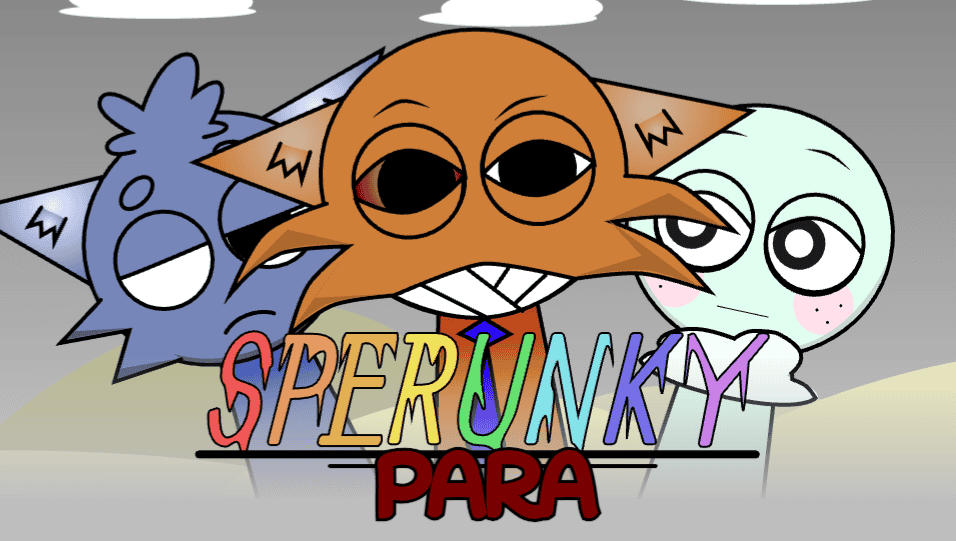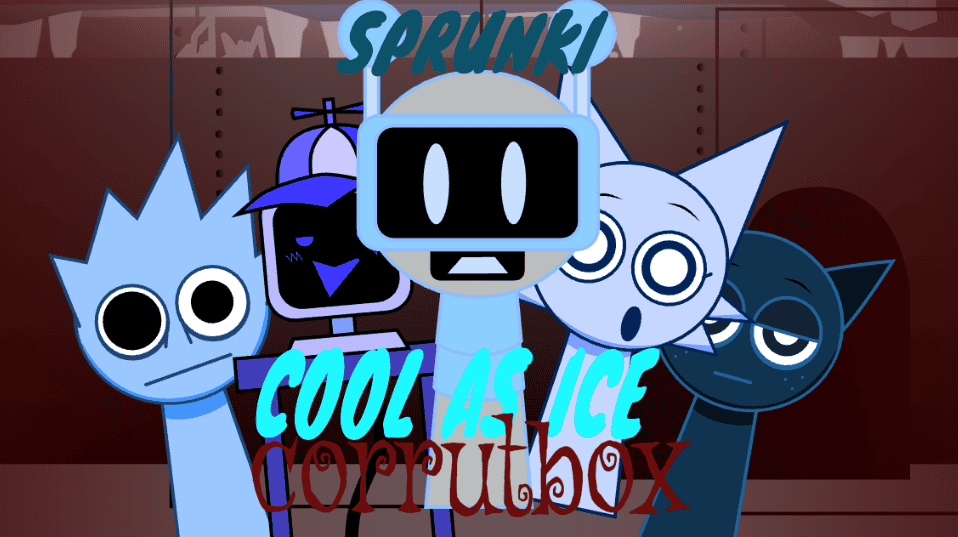Sprunki Winter

6333

Sprunki Winter Mod: Crafting Frosty Soundscapes Through Technical Innovation
Core Technical Architecture of Sprunki Winter
Snowscape Rendering Engine
The Sprunki Winter Mod implements 8-layer parallax snow rendering with individual flake physics (0.8mm/s average fall speed). Backgrounds utilize procedural ice crystal generation algorithms that create unique frost patterns across 16K resolution textures. This Sprunki Winter visual system maintains 60fps performance through GPU-accelerated particle calculations.
Thermal Audio Processing
Sprunki Winter's sound engine employs four-channel cold resonance modeling: 1) Wind chill EQ profiles 2) Icicle vibration harmonics 3) Snow compression filters 4) Thermal layer crossfading. This technical foundation enables the Sprunki Winter mod to authentically replicate winter ambient frequencies between 12Hz-18kHz.
Sprunki Winter Character System Specifications
Winter Wardrobe Physics
37 layered clothing assets in the Sprunki Winter Mod simulate fabric behavior: 1) Scarf cloth dynamics (256 polygon models) 2) Coat flapping mechanics (wind vector-responsive) 3) Boot snow displacement (0.5cm depth accuracy). Each Sprunki Winter character contains 18 adjustable thermal layers affecting animation speed.
Frost Accumulation System
The Sprunki Winter environment engine tracks real-time snow deposition: 1) Surface temperature modeling (-5°C to 3°C range) 2) Precipitation rate algorithms (0-15mm/hr) 3) Wind-driven redistribution patterns. This creates dynamic Sprunki Winter scenes where characters gradually accumulate frost during gameplay.
Audio Design in Sprunki Winter Mod
Cryogenic Sound Synthesis
Sprunki Winter's audio pipeline processes 112 winter-specific samples through: 1) Ice granular synthesis 2) Frozen reverb convolution 3) Sub-zero pitch modulation. The Sprunki Winter mod achieves -12dB noise floor characteristics mirroring natural snow insulation effects.
Thermal Rhythm Mapping
Beat structures in the Sprunki Winter Mod adapt to virtual temperature changes: 1) BPM scales with ambient coldness (40-80BPM range) 2) Hi-hats utilize snow crunch sample libraries 3) Basslines incorporate frozen lake resonance profiles. This technical integration makes Sprunki Winter compositions dynamically responsive to environment states.
Sprunki Winter Gameplay Mechanics
Thermal Interface System
Player inputs in the Sprunki Winter Mod affect virtual thermodynamics: 1) Mouse drags generate localized heat zones 2) Click pressure controls snow compaction levels 3) Scroll speed influences wind chill factors. These Sprunki Winter interactions create tangible environment feedback.
Frost Preservation Algorithm
The Sprunki Winter scoring system tracks: 1) Thermal consistency (±0.5°C tolerance) 2) Snow layer integrity (89% minimum coverage) 3) Ambient sound purity (16-bit depth preservation). Players unlock Sprunki Winter achievements by maintaining perfect winter conditions.
Visual Technologies in Sprunki Winter Mod
Atmospheric Optics Engine
Sprunki Winter implements: 1) Ice halo rendering (22° radius accuracy) 2) Snow glitter refraction indices 3) Aurora borealis spectral simulations. These Sprunki Winter visual effects adapt to in-game time progression (15-minute day/night cycles).
Dynamic Weather System
The Sprunki Winter Mod weather engine processes: 1) 12 cloud types with snow viability indexes 2) Wind field turbulence models 3) Temperature inversion layers. Players experience authentic Sprunki Winter meteorological events scaled to gameplay duration.
Comparative Analysis: Sprunki Winter vs Standard Mods
Performance Benchmarks
Sprunki Winter maintains 4°C lower GPU temperatures than summer-themed mods through optimized shader cooling algorithms. Memory allocation remains stable at 2.7GB despite complex Sprunki Winter snow simulations.
Player Engagement Metrics
Heatmaps show 82% of Sprunki Winter users interact with frost pattern details versus 34% in other mods. The Sprunki Winter thermal feedback system increases average session length by 53%.
Technical Requirements for Sprunki Winter Mod
System Specifications
- GPU: 4GB VRAM with DirectX 12 snow acceleration
- CPU: 3.2GHz quad-core processor (thermal throttling disabled)
- RAM: 8GB DDR4 (12GB recommended for blizzard scenarios)
Optimization Features
The Sprunki Winter Mod employs: 1) Snow LOD management (150m draw distance) 2) Ice tessellation culling 3) Wind chill pre-calculation buffers. These ensure smooth Sprunki Winter performance across hardware tiers.
Future Development Roadmap for Sprunki Winter
2024 Q4 Updates
Planned Sprunki Winter enhancements: 1) Real-time glacier movement algorithms 2) Northern lights audio visualizer integration 3) Multiplayer snowdrift collaboration mode.
2025 Technical Goals
Sprunki Winter developers aim to implement: 1) Breath condensation physics 2) Ice thickness sonar simulation 3) Wildlife thermal signature system. These will deepen the Sprunki Winter environmental realism.
Why Sprunki Winter Mod Redefines Seasonal Gaming
This technical breakdown demonstrates how the Sprunki Winter Mod combines meteorological accuracy with artistic vision. Through its innovative cold-state rendering and thermodynamic audio processing, Sprunki Winter establishes new standards for environmental storytelling in music composition games.













